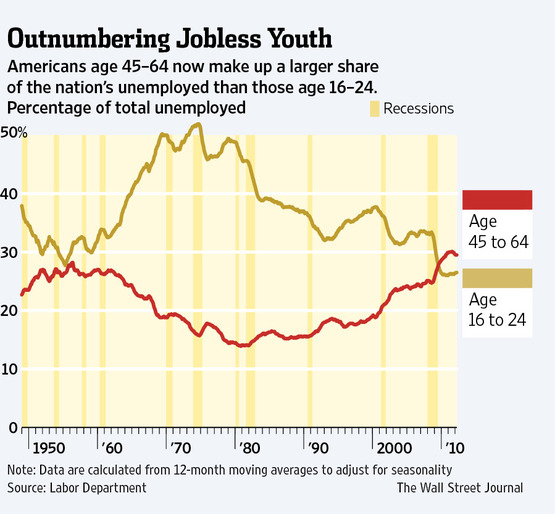Younger people think us baby-boomers had it made but this was not really true. Older baby-boomers, who became adults in the 1960s, enjoyed a great economy. Younger ones, who became adults in the 1970s, faced high unemployment and stagflation, economic times more challenging than we face today, at least for youth. One reason we are well educated is that we stayed in school because we couldn’t find good steady work.

I noticed an interesting story in the WSJ talking about how older workers are being affected more acutely then even younger workers by current doldrums. Take a look at this chart and count backwards. Younger baby-boomers were young during the rotten times of the 1970s and are now the old of the rotten times today.
But let’s share a deeper fear. As a 57-year old, I am afraid that my skills are becoming – have become – obsolete. Experience means much less in a world that is rapidly changing and in some cases old skills may actually become a liability. Thirty years of experience in one line of work may be of no value looking for a job in another. There is also the assumption that young people know the tricks of technology that old dogs cannot learn.
I think this is why older workers fear losing their jobs so much. Once we fall out, our chances of getting back in are limited. Those with the means may simply choose early retirement; others will just be poor and this period of unemployment may well affect their life prospects for the next thirty years or until they shuffle off this mortal coil, poorer, sadder but perhaps not wiser.
Random chance plays a big role in our lives. Those who are successful are less often the smartest or the quickest than those who keep trying. As you get older, you have fewer roles of the dice left and often fewer places to throw them. I don’t have a solution to this problem, which more or less reflects the human condition. But I do point it out to those who might think that unemployment among older people is a situation that doesn’t matter so much since they can retire.
